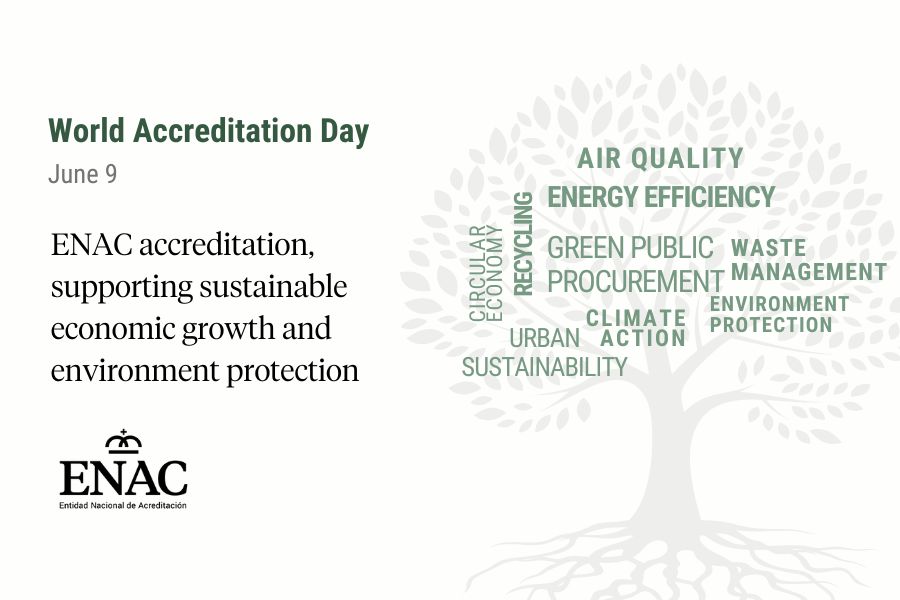wad2022-eng
Accreditation: a tool for sustainable and environmentally-friendly economic development

The global economies’ vertiginous growth comes at the expense of our planet’s sustainability; therefore, it is essential to achieve the maximum use of natural resources with the minimum impact on the environment. A challenge that, in the words of Joyce Msuya, acting executive director of the UN Environment Programme, demands that governments and global market actors reformulate their idea of progress towards sustainable and environmentally friendly economic development.
Within this framework, on World Accreditation Day, June 9, the international accreditation organizations, ILAC (International Laboratory Accreditation Cooperation) and IAF (International Accreditation Forum) want to highlight the guarantees provided by accreditation and accredited services to achieving sustainable and environmentally friendly economic development.
At the national level, ENAC highlights that Spain already has more than 1800 accredited bodies in charge of carrying out assessment and control activities of products and services from all sectors, contributing to promoting an economic future with the highest guarantees of safety, quality, and respect for the environment.
Accredited bodies serving sustainable development
Ensuring sustainable economic development is key to carrying out resource management and environmental impact controls. In our country, more than 400 ENAC-accredited bodies have demonstrated the necessary technical capacity to carry out more than 500 environmental assessment and control, energy efficiency and renewable generation, urban sustainability, and waste management activities, these being key to achieving the 2030 Agenda’s sustainable development goals.
In addition, within the circular economy framework, more than 200 ENAC-accredited bodies have been proven to offer companies and institutions a service with the necessary quality to start transforming towards this model with guarantees at every step: in the design phase and production processes (for example, testing of eco-design requirements; renewable energy element and facility testing and certification, or biofuel and bioliquid sustainability inspection); in the consumption phase (such as sustainability, environmental impact, or energy efficiency certificates and reports); and in the recovery phase (landfills, waste characterization monitoring, inspection and control, the amount of recycled plastic in non-reusable plastic containers certification, reclaimed wastewater analysis, among others).
For further information on how accreditation is a useful tool for achieving more sustainable economic development, as well as for examples of the accredited services available in Spain, see the following link.
Accreditation News
Accreditation News is published quarterly and sent to organizations and to people who have asked to be included on its mailing list.
Would you like to receive a free copy of Accreditation News? Subscribe here.

